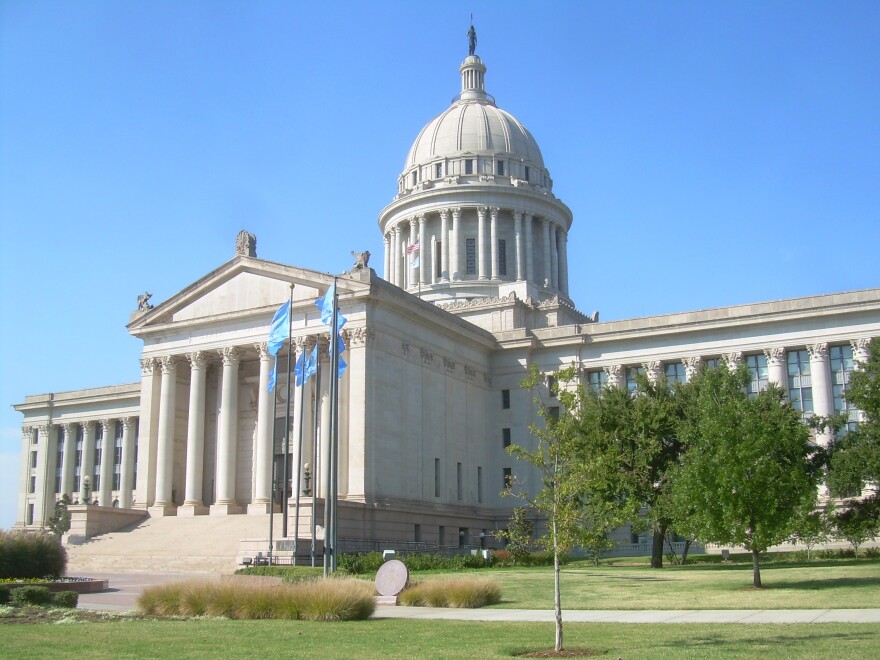Lawmakers returned to the Capitol on Wednesday to appropriate about $1.4 billion in federal ARPA funding, and despite debate over how the funds should be used, the work is finished unless a small group of legislators succeeds in extending the session to consider other issues.
TRANSCRIPT
Capitol Insider sponsored by the Oklahoma State Medical Association. Physicians dedicated to providing and increasing access to health care for all Oklahomans. More on the vision and mission of OSMA @okmed.org.
Dick Pryor: This is Capitol Insider - taking you inside politics, policy and government in Oklahoma. I'm Dick Pryor with Quorum Call publisher Shawn Ashley. Shawn, the Oklahoma legislature has finished appropriating most of the $1.8 billion received from the federal government through the American Rescue Plan Act. I say “most” because the second special session called to pass appropriations bills is not quite over. What have they passed in the special session so far?
Shawn Ashley: Lawmakers passed more than 20 measures that appropriate nearly $1.5 billion of the $1.8 billion in federal ARPA money received by the state. In addition, they appropriated $250 million for industrial park improvements that were set aside during the 2022 regular session in the Progressing Rural Economic Prosperity Fund, also known as the PREP Fund. And finally, they appropriated $20 million for drought relief efforts. That money came from excess collections during fiscal year 2022 that ended June 30th.
Dick Pryor: Legislators did not consider identical House and Senate bills that would have appropriated around $90 million in ARPA funds to the Department of Human Services for various projects approved by the Joint Committee on Pandemic Relief Funding. What projects would those bills fund?
Shawn Ashley: There were ten projects in that legislation, including $25 million to expand child care services, $30 million to increase poverty wraparound services at locations mitigating food deserts, $2.8 million to provide semi-independent housing and transitional tools to domestic violence victims, $700,000 to expand programs for fathers in high risk communities’ focus on reducing domestic violence, $1 million for capital improvements at a facility that serves victims of domestic violence, $2 billion to develop a multi-purpose community facility to provide assistance to domestic violence victims, $30.1 million to promote healthy childhood environments, $3 million to develop a food program, $342,360 to provide counseling and support services for at risk youth, and $300,000 for addressing holistic approaches in violence prevention.
Dick Pryor: So why did the legislature refuse to take up those bills in the special session?
Shawn Ashley: There was a disagreement between the House and the Senate related to the $2.8 million to provide semi-independent housing and transitional tools to domestic violence victims. Senate President Pro Tem Greg Treat said Friday that the House and Senate are working on resolving those differences and he expects the bill and the projects will be considered, perhaps even fast-tracked, in the 2023 regular session.
Dick Pryor: A small group of legislators opposed the appropriations bills in general and a larger group, but still a minority of lawmakers, opposed a bill that provides money to the University Hospitals Authority that oversees the OU Health Sciences Center. What were the opposition arguments?
Shawn Ashley: Well, really, they broke down into three camps. One group, as you mentioned, made up of Republicans, opposed all the bills because they said it was federal money that had been borrowed, increasing the national debt. Another group, mostly House Democrats, opposed the bill because it prohibits University Hospitals Authority from using any money, not just the ARPA money, to provide gender affirming medical treatments. And the third group, also made up almost of all Republicans, opposed the bill because they said the ban on gender affirming medical treatments did not go far enough, since it was just limited to the University Hospitals Authority and was not a statewide ban.
Dick Pryor: The second special session is supposed to end by midnight October 14th, but some Republican members want to expand the call of the session. Why do they want to do that and how could that lengthen the session?
Shawn Ashley: They would like to see tax relief considered, which is the reason Governor Kevin Stitt called the third special session. They would also like to see a statewide ban on gender affirming medical treatment added to the agenda to be considered in special session. To be successful, they need signatures from two thirds of the members of each chamber, and that would cause the special session to go on beyond October 14th. But the second special session and Stitt’s third special session will automatically dissolve in mid-November when the members of the 59th Legislature take their oaths of office.
Dick Pryor: Thanks, Shawn.
Shawn Ashley: You're very welcome.
Dick Pryor: And that's Capitol Insider. If you have questions, email them to news@kgou.org or contact us on Twitter @kgounews and @QuorumCallShawn. Until next time, with Shawn Ashley, I'm Dick Pryor.






